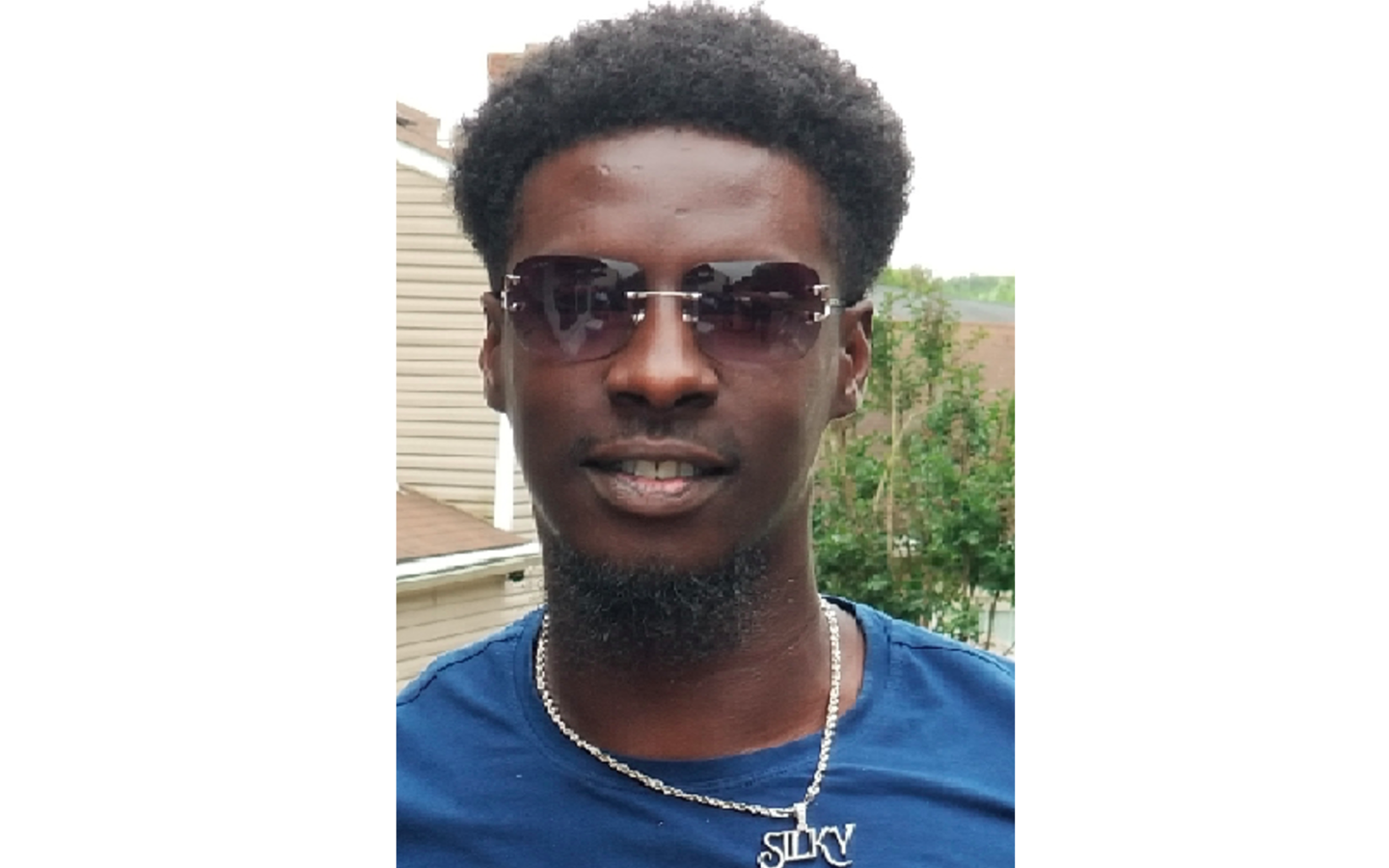A complaint filed against two Baltimore Police officers on behalf of the family of a Baltimore man describes an unconstitutional police stop that resulted in the discovery of a decriminalized amount of cannabis which quickly escalated into, lawyers allege, cops deleting evidence and planting drugs. The complaint goes on to detail how the man, Sherman Reed Jr., had reached out to the Baltimore Police Department about the officers involved in his arrest and that he was found murdered days before he was supposed to speak to Internal Affairs.
According to the complaint filed on August 26, on the evening of June 5, 2019, Sherman Reed Jr. was driving home from a funeral when the Baltimore Police Department’s John Jaimes, driving an unmarked car, stopped him. According to the complaint, Reed Jr. “was not committing any traffic infractions and did not have any outstanding warrants,” when he was pulled over by Jaimes.
When Jaimes approached Reed Jr.’s car, the complaint says, he was screaming with his gun drawn and demanded Reed Jr., a thirty-one year-old father and a high school baseball star, put the car in park.
Reed Jr. put his car in park and then removed his license and registration and put them outside of the driver’s side window. Jaimes took them, walked back to his car and called for back-up.
Reed Jr. meanwhile, placed his cell phone on his dashboard and began recording. Soon, the Baltimore Police’s Joshua Stackhouse arrived.
Jaimes told Reed Jr. to exit the car, which Reed Jr. did with his hands up. Next, Jaimes searched Reed Jr.—once again,”without any reasonable suspicion or probable cause,” the complaint says—and eventually found a blunt on Reed Jr.
Then Jaimes searched Reed Jr.’s car and after searching the car, announced, “It’s just weed,” and told Reed Jr. he could go. Cannabis possession of up to 10 grams is decriminalized in Maryland as of 2014 and as of February 2019, Baltimore City State’s Attorney Marilyn Mosby announced her office would not prosecute even misdemeanor cannabis possession. Cannabis arrests have continued to decrease in Maryland and allowed Reed Jr. to leave without even issuing a citation—especially because the complaint noted, there was no reason for the stop to begin with.
But when Reed Jr. got in his car, he noticed that his cell phone, which he had left recording, was in a different place on the dashboard, was no longer recording, and video which captured part of his exchange with Jaimes had been deleted.
So Reed Jr. began recording again while he waited for Jaimes to return with his license and registration.
When Jaimes returned, he asked Reed Jr. why he was recording and Reed Jr. explained that the nature of the stop, that it began with Jaimes pointing a gun at him, is why he was recording.
“You just talked yourself into an arrest,” Jaimes told Reed Jr., the complaint says.
Reed Jr. was arrested and placed in Stackhouse’s patrol vehicle. Jaimes then asked Reed Jr. if anybody could come get his car and Reed Jr. said that he’d need to call someone to come pick up. When Reed Jr. did not allow Jaimes—who it seemed, had previously moved and deleted video from his phone—to make a call for him, Jaimes told him, “I guess it’s getting towed.”
Reed Jr., who had still not been told why he was arrested or what he was being charged with, was placed in a cell at the Southern District Police Station. Soon, Reed Jr. told police he needed to use the bathroom and was taken to a bathroom by police officers. The complaint notes that “Jaimes and Stackhouse were still inside the Southern District station” while Reed Jr. went to the bathroom.
When Reed Jr. was brought back to the Southern District cell, he noticed a bag of white powder placed in his cell where he had been sitting that was not there when he left with a police officer to use the bathroom.
Reed Jr., who is Black, asked for a Black officer to come to the cell because he worried he “was being framed.” Both Jaimes and Stackhouse are white. No Black officer was called and Stackhouse soon arrived wearing plastic gloves.
Stackhouse, the complaint says, then took the bag of white powder and then Jaimes told Reed Jr. he was being charged with cocaine possession.
“Clearly,” the complaint says, “those drugs had been planted.”
On July 7, 2019, a little more than a month after the stop and arrest, Reed Jr. filed a complaint with the Baltimore Police Department’s Internal Affairs against Jaimes.
In August, Reed Jr. was scheduled to be interviewed by Internal Affairs, the complaint explains, but that never happened because Reed Jr. was murdered in his home sometime between the evening of August 14, 2019 and the evening of August 15, 2019.
Reed Jr.’s mother and father, Sherman Reed Sr., Coppin State University’s baseball coach, found Reed Jr. dead in his house, lying face down, a gun shot in his head the night of August 15. They went over to his house after he wasn’t answering his phone and did not get his son from camp earlier in the day.
Because of Reed Jr.’s father’s position as a Coppin State coach, the murder made local news, including coverage of his funeral, with local politicians such as Baltimore Mayor Jack Young and Baltimore City Council President Brandon Scott commenting on the murder.
Attorney Mandy Miliman filed the complaint after the Reeds reached out to her because of an eerily similar case involving police malfeasance and the murder of a another Baltimore man that Miliman had also handled.
In August of 2016, a man named William James was stopped by members of the corrupt Baltimore Police squad the Gun Trace Task Force (GTTF), and had a gun planted on him. The GTTF, a police squad who were stealing money and drugs, dealing drugs, planting evidence, and routinely violating Baltimoreans’ constitutional rights were federally indicted in March 2017. Not long after the indictment James was let out of prison—where he had been on a gun charged since the weapon was planted on him in 2016—and he reached out to Miliman about suing the GTTF officers.
James’ civil lawsuit against the officers was the first of many filed in state court. In early 2019, James was awarded $32,000.00. Miliman intended to also sue the city of Baltimore—the employer of these corrupt cops—and the case then went through some complex legal wrangling in which the city would argue it was not responsible for GTTF’s actions (the James case is described in detail in this 2019 article by my coauthor Baynard Woods).
On April 29, 2019, before the lawsuit was settled (it would eventually go to Maryland’s Court of Appeals), James was murdered. Last month, James’ estate was awarded $200,000 by the city of Baltimore.
James’ murder remains unsolved.
Now, there is another family in Baltimore without answers in a case involving police, allegations of planted evidence, and murder. The complaint filed by Miliman on behalf of the estate of Sherman Reed Jr. demands “compensatory damages in excess of $75,000.00 and punitive damages in excess of $75,000.00.”
Reed Jr.’s murder has not been solved.
“Neither Internal Affairs nor Detectives from the Baltimore Police Department will respond to inquiries by Mr. Reed’s family,” the complaint says.
The Outlaw Report learned that there are multiple witnesses willing to come forth.
“According to the family, detectives have not followed up on tips by witnesses,” the complaint says.






